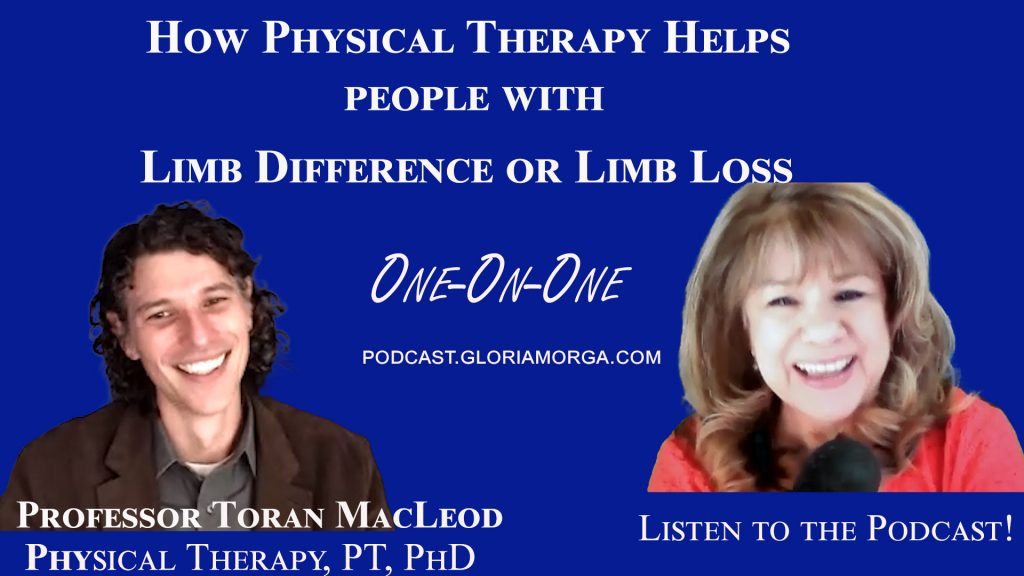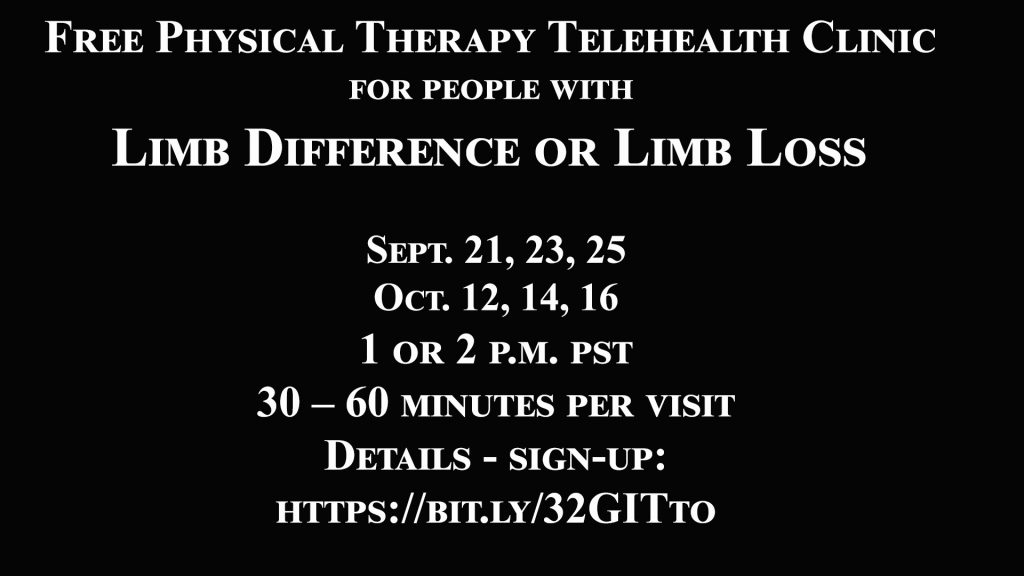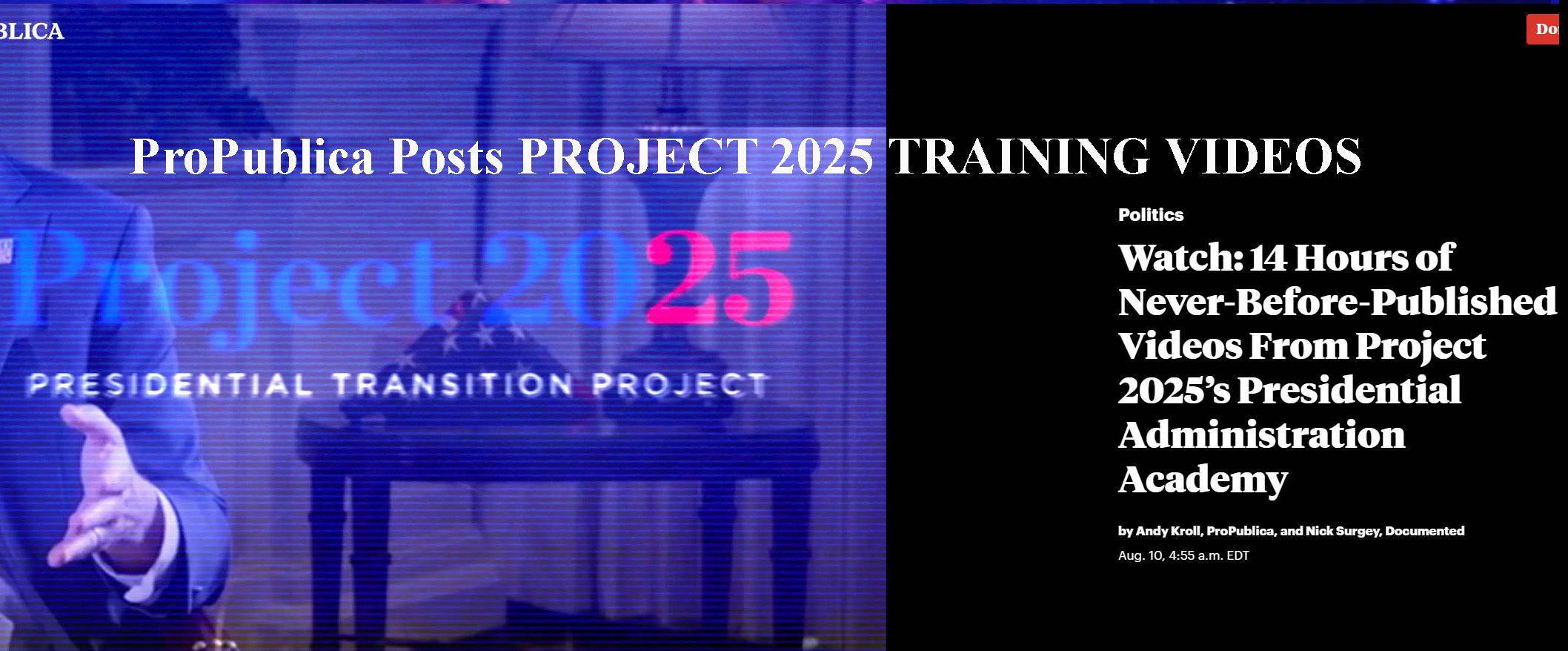
Physical Therapy for Amputees – Free Telehealth Clinic
2.1 million people in the United States are living with Limb Loss. Physical Therapy could help many of them. Each year 1 million people in the world undergo an amputation. That’s one every thirty seconds somewhere in the world. But there is no guarantee that those people will be involved in a long-term physical therapy program.
Physical Therapy can help people living with limb difference or loss, regain their balance, and learn to live with this significant change in their lives.
And so, for the first time, the Physical Therapy Department at Sacramento State is opening up its amputee clinic to the world. Because of COVID, the popular clinic is going to be available online. Professors and students will be using Telehealth to communicate with patients. All you need a Zoom account and time.
One-On-One Communication now includes health clinics and doctor’s visits online!

My Physio Story
Physical Therapy. Also known as Physiotherapy. Those of us who live with a long-term physical disorder call it P.T. Many times I just called it “P.T. Hell.”
Let me tell you my Physical Therapy story.
When I was a little girl still recovering from the poliovirus that paralyzed my body, I remember my Mom saying, “Get up, get dressed. We are going to Physio!”
Physio. How I hated it. It meant pain and stress, and failure. I am lucky. I had a mother who would not let me quit. Quitting is not an option. And this attitude is a good thing. Physical Therapy and Shriner’s Hospital helped me learn to walk again. I was able to walk, work, play, and thrive.
Yes, I limp, but I did not use crutches for 50 years. I only began using crutches when I got older and to take the pressure off my knee.
Some people are as “lucky” as I.
Millions of amputees don’t have a physical therapy nag in their lives. It’s too bad. Because now I know, P.T. improves your quality of life, your mobility, your ability to thrive.
Here is a shortlist of some of the ways Physical Therapy can help people with limb difference or loss. P.T. improves your
- Balance
- Increase your mobility
- Help you to avoid falls
- Help manage your weight
- Develop an exercise program
- Improve your quality of life
Please check out my post on Avoiding Falls https://gloriamoraga.com/falling-down-and-getting-up-again-and-again/
My One-On-One guest this week is Professor Toran MacLeod, PT, Ph.D. MacLeod is an Associate Professor in the Department of Physical Therapy at Sacramento State. His area of expertise is physical therapy for people with limb loss. The phrases he uses are Limb Difference or Limb Loss.
This information is from the Amputee Coalition. https://www.amputee-coalition.org/
There are more than 1 million annual limb amputations globally.
That means an amputation occurs every 30 seconds somewhere in the world.
Limb loss is much more common than many people realize—the causes: accidents, war, diseases, particularly diabetes.
2.1 million people live with limb loss in the USA, and that number could double by 2050.
One hundred eighty-five thousand people have an amputation each year. That’s 300 to 500 amputations every day.
1,558 military personnel lost a limb as a result of the wars in Afghanistan and Iraq.
Around 30% of people with limb loss experience depression and anxiety. I’m sure that the number is low.
African Americans are four times more likely to have an amputation than White Americans.
More than half of people with diabetes who have a lower leg will lose their second leg within 2‐3 years.
Nearly half of the individuals who have an amputation due to vascular disease will die within five years, according to the Access Prosthetics website. https://accessprosthetics.com/15-limb-loss-statistics-may-surprise/
The One-On-One Telehealth Clinics help students connect and learn, but they also help people with a limb difference or limb loss. These are people who sometimes fall through the health care cracks. So often, an amputation seems to be the end of something in life, not the beginning of anything. But that doesn’t have to be true.
It was a pleasure to speak with Professor Toran MacLeod. We talked about teaching, and Zoom, students and technology and helping people and being kind.
“We all need to be kinder to each other,” he said.
He is a brilliant man!



